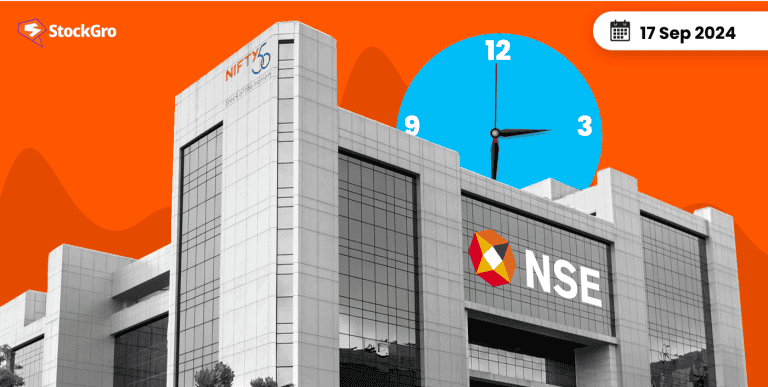
In a move that will benefit both investors and issuers, the Securities and Exchange Board of India (SEBI) has introduced a faster process for trading bonus shares. Starting from October 1, 2024, SEBI’s new guidelines will allow trading of bonus shares just two days after the record date (T+2). This change significantly cuts down the current timeline, which can take up to a week or more.
But what does this mean for the average investor, and how does it streamline the process for companies? Let’s break it down.
What Are Bonus Shares?
A bonus issue refers to free additional shares granted by a company to its existing shareholders. These shares are usually issued in proportion to the number of shares already owned. For example, if a company issues bonus shares in a 1:1 ratio, an investor holding 100 shares will receive 100 additional shares.
The catch? While you receive more shares, the overall investment value remains the same. Bonus shares simply increase the total number of shares, but the share price is adjusted so that the market capitalization remains unchanged.
This process has been a common corporate action for rewarding shareholders without diluting their stakes. However, until now, the process for trading these shares after the issue has been a bit slow and inefficient.
Current Process: Why Does it Take So Long?
Before SEBI’s new guidelines, investors had to wait anywhere between 2 to 7 working days to begin trading their bonus shares after the record date. Here’s how it worked:
- The company announced the bonus issue.
- The record date was set (let’s call it T day), which determined which shareholders were eligible for the bonus shares.
- After the record date, bonus shares would take days to be credited to the shareholders’ accounts.
- Trading of these shares could only begin once all shares were credited, often delayed by administrative processes, meaning trading could take up to a week or longer.
Such delays resulted in a disjointed experience for investors, leaving room for market fluctuations to affect share prices before the new bonus shares could even be traded.
The New T+2 Guidelines: What’s Changed?
From October 1, 2024, the T+2 timeline will significantly reduce the waiting period for trading bonus shares. Investors will be able to trade their bonus shares just two working days after the record date.
Here’s a quick breakdown of how the new process works:
- T Day (Record Date): This is the day when a company determines which shareholders are eligible for the bonus shares.
- T+1 Day: The shares are credited to shareholders’ accounts. SEBI’s new guidelines streamline this part of the process by ensuring that companies submit the necessary documents to stock exchanges and depositories by 12 pm on T+1 day.
- T+2 Day: Bonus shares are available for trading on the second working day after the record date.
For instance, if a company sets November 4 (Monday) as the record date, the bonus shares will be credited on November 5 (Tuesday), and investors will be able to trade these shares by November 6 (Wednesday).
This new system aims to reduce delays and improve overall market efficiency, creating a better experience for both issuers and investors. In simpler terms, your bonus shares will be ready to trade almost immediately.
Why This Matters for Investors and Issuers
So, why is this such a big deal? Simply put, it reduces the investor’s exposure to market volatility. Waiting a week for bonus shares to be available for trading can be risky, as share prices can fluctuate significantly during that time.
The T+2 system ensures that investors can quickly adjust their portfolios if needed, minimizing the risk of being stuck with an unfavourable price shift.
From an issuer’s perspective, this process is more streamlined and requires fewer administrative hurdles. For example, SEBI has eliminated the need for temporary ISINs, which were previously required for bonus shares. Now, bonus shares will be credited directly into the existing ISIN of the company’s shares, further speeding up the process.
Key Steps in the New Process
SEBI’s operational procedures are straightforward and focus on ensuring timely compliance. Here are the key steps:
- Board Approval: Companies proposing a bonus issue must apply for in-principle approval from the stock exchange within five working days of the board meeting that approved the bonus.
- Setting the Record Date: The company sets the record date (T day), which determines which shareholders will receive the bonus shares. The company must also determine the deemed date of allotment, which will be the next working day (T+1 day).
- Stock Exchange Confirmation: After receiving the necessary documents from the company, the stock exchange will issue a confirmation notice on T+1 day, indicating the number of bonus shares and confirming the deemed date of allotment.
- Credit of Bonus Shares: By 12 pm on T+1 day, issuers must submit all necessary documents to depositories to ensure quick credit of the bonus shares to eligible shareholders.
- Trading Starts: On T+2 day, bonus shares will be made available for trading, reducing the current delay of up to seven days to just two working days.
- No Temporary ISINs: As mentioned earlier, the requirement for temporary ISINs has been removed, simplifying the process further. Bonus shares will be credited directly into the existing ISIN of the company’s shares.
Penalties for Delays
SEBI has also made it clear that non-compliance with these timelines will attract penalties. This adds an extra layer of accountability to the process, ensuring that companies stick to the prescribed timelines.
A Win-Win for the Market
The T+2 system for bonus shares is a win-win for everyone involved. It ensures that investors get faster access to their bonus shares and can trade them almost immediately. For companies, it simplifies the administrative process, reduces costs (no more temporary ISINs!), and improves compliance.
Benefits for Issuers:
- Faster execution of bonus share allotments.
- Reduced administrative costs and paperwork.
- Greater market confidence from investors.
Benefits for Investors:
- Quicker access to bonus shares.
- Reduced exposure to market volatility.
- More efficient trading opportunities.
What This Means for the Future
SEBI’s initiative to accelerate the process of trading bonus shares reflects its commitment to making India’s financial markets more efficient and investor-friendly. It brings the country closer to global best practices, where faster settlement cycles are becoming the norm.
The T+2 system aligns with SEBI’s broader goal of creating a seamless experience for market participants. By reducing delays and ensuring quicker access to bonus shares, the regulator is not only boosting market confidence but also encouraging greater participation.
This is good news for millennials and Gen Z investors, who value speed and efficiency in today’s fast-paced financial landscape. If you’re a shareholder expecting bonus shares soon, be prepared to see them in your account much quicker than before.
In the evolving world of investing, every second counts. And with SEBI’s new guidelines, you’ll have those extra shares in your hands much sooner.This is the kind of streamlined, efficient system that benefits all parties, and it shows SEBI’s continued efforts to modernise the Indian financial markets. So, starting October 1, be sure to mark those T+2 dates on your calendar!

